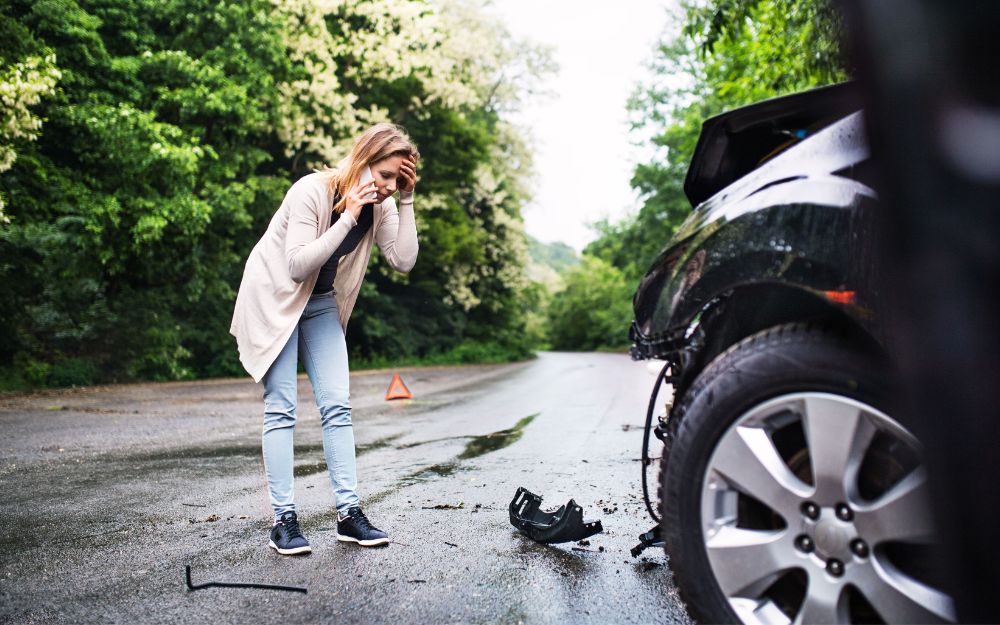
Less than one third of the Australian population lives in regional and remote areas but nearly two thirds of all fatal car accidents occur on rural and remote roads.
The car accident fatality rate per population increases drastically with the level of remoteness. Young people aged up to 25 years of age tend to be disproportionately involved in rural and remote road trauma.
Indigenous Australians, most of whom live outside major cities, are up to three times more likely to be killed in a car accident and significantly more likely to be injured as passengers or pedestrians.
The rate of serious non-fatal car accident injuries among rural and remote residents is nearly twice that of those who reside in major cities.
Many fatal and serious car accidents in rural and remote areas are not recorded in official road data, because the accidents occur on public or private land, where rates of seat belt and helmet use are low compared to with public roads. High proportions of public and private property accidents involve motorcycles and quad bikes.
Most accidents occur during daylight hours and more occur between Friday and Sunday. They involve local residents, with only a small proportion of car accidents involving international or interstate visitors.
Most car accidents are single vehicle accidents particularly run-off-road car accidents.
There are both human and environmental factors associated with rural and remote car accidents.
Human Factors
Alcohol: The number of serious car accidents involving alcohol increases with the level of remoteness. Fatal car accidents are roughly twice as likely to involve alcohol compared with non-fatal car accidents.
Distraction: Studies have shown that 30% of rural road users reported being distracted prior to the car accident.
Fatigue: Longer driving distances and driving time in rural areas lead to an increase of fatigue. Fatigue has been attributed to one third of fatal car accidents on rural roads. The monotonous roadside landscape of rural areas can result in fatigue like affects.
Seatbelt: Even though there is a high level of seatbelt use in major cities, non-use of seatbelts in rural areas increases with remoteness. The lack of a seatbelt contributes substantially to the degree of injury suffered in a car accident.
Speed: While exceeding the speed limit is often the cause of car accidents, so is driving at an inappropriate speed for the road conditions. Driving too fast for the road conditions can still lead to a car accident, even though the car is traveling at or below the speed limit. Of course, speeding in general is also associated with car accidents.
Age: Generally, drivers aged between 17-24 have a higher risk of injury in a car accident, but male drivers aged between 30-50 years make up the majority of serious and fatal car accident causalities in rural and remote areas.
Environmental Factors
Travel Distance: Greater travel distances and time spent at the wheel increase road exposure and the higher risk of a car accident. The distance from population centres can also compromise emergency response times and access to critical medical treatment.
Road Conditions: Lower quality road conditions, like a narrow shoulder, unsealed road surfaces, potholes and oncoming traffic in narrow sections of road, all propose problems, particularly when coupled with inappropriate speeds.
Higher Speed limit: Rural and remote roads in Queensland can have default speed limits of 100km/hr. It has been found that the proportion of car accidents in higher speed zones increases with remoteness.
Unsealed roads: Car accidents on rural or remote unsealed roads have been shown to be more severe and almost double compared to the number of fatalities compared with those on sealed roads.
Unique hazards and unpredictability: Livestock and wildlife can appear on roads without warning. Farm and mining vehicles can also be unpredictable. Driving unfamiliar roads at high speed is also associated with the risk of a car accident.
We can help
If you have been injured in a car accident on a country road, please contact us as soon as possible for help. Strict time limits apply to claims for compensation. Call over personal injury lawyers on 1800 302 318 or fill out our online enquiry form.